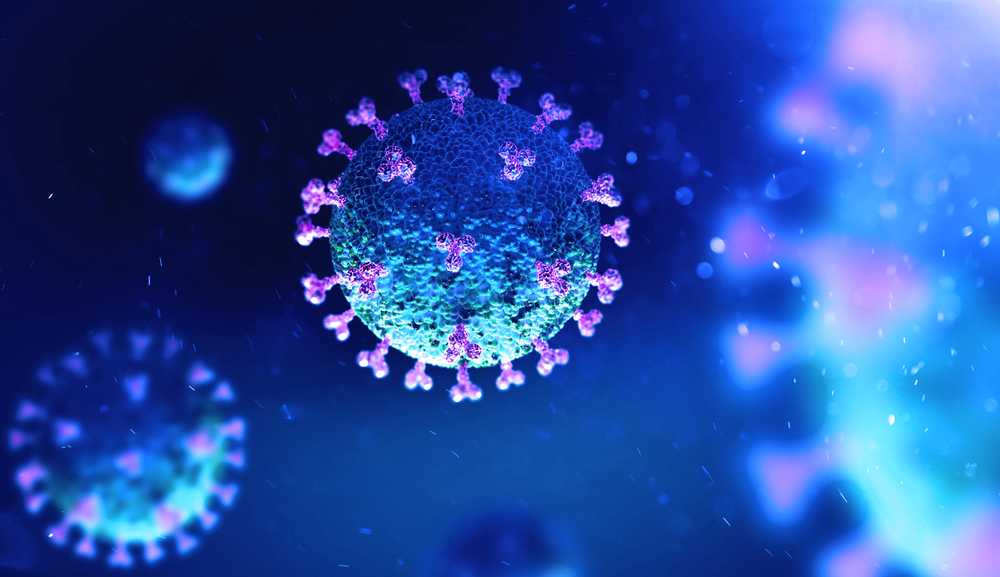Long COVID is real. For millions of people who contracted COVID-19, recovery has been a long and uncertain road. While many regained their health in weeks, others continue to face persistent symptoms and health problems for months or even years after the acute infection. Patients, caregivers, and clinicians alike have named this condition “long COVID,” while scientists often refer to it as post-acute sequelae of SARS-CoV-2 (PASC).
The long-term effects of long COVID vary widely and can affect multiple organ systems, including the brain, heart, and lungs. Fatigue, brain fog, breathlessness, and joint pain are commonly reported symptoms, but one area that often goes unaddressed—yet plays a critical role in overall health—is sleep. As an assistant principal investigator for RECOVER-SLEEP, an NIH clinical trial investigating sleep disturbances in long COVID, I am acutely aware of how this condition disrupts patients’ lives and the difficulty in finding effective treatments.
The toll of long COVID
Long COVID is not “in someone’s head,” though many patients feel invalidated when their symptoms are dismissed or misunderstood. Research shows that long COVID is a genuine, multifaceted condition. It affects people differently, and symptoms often wax and wane unpredictably. This variability makes it challenging to diagnose, study, and treat.
Sleep disturbances are a particularly burdensome aspect of long COVID. Patients report difficulty falling asleep, staying asleep, or feeling rested after sleep. Excessive daytime sleepiness (hypersomnia) and irregular sleep-wake patterns are also common. For many, these issues exacerbate other long COVID symptoms, such as fatigue, cognitive dysfunction, and mood disturbances, creating a vicious cycle.
The intersection of sleep and health
Sleep is a cornerstone of good health, essential for physical restoration and cognitive functioning. When sleep is disrupted, it affects nearly every system in the body. Poor sleep contributes to weakened immunity, impaired memory, mood disorders, and cardiovascular risks. For long COVID patients already grappling with a cascade of symptoms, sleep issues can further diminish their quality of life.
The connection between COVID-19 and sleep disturbances is still being studied, but emerging evidence suggests multiple mechanisms. Inflammation, a hallmark of COVID-19, may disrupt sleep-regulating pathways in the brain. Psychological stress, a major component of the pandemic, also plays a role. Additionally, direct viral impacts on the central nervous system may alter circadian rhythms.
Challenges for patients and clinicians
Both patients and clinicians are frustrated by the lack of clear guidance or effective treatments for long COVID-related sleep disturbances. Many patients feel caught in a maze of medical visits, diagnostic tests, and trial-and-error treatments. Clinicians, meanwhile, face the daunting task of treating a poorly understood condition with limited tools and evidence.
The stigma around long COVID further complicates care. Patients frequently report feeling dismissed or misunderstood by health care providers, family, or employers. This dismissiveness can discourage people from seeking help and exacerbate their struggles with sleep and other symptoms.
RECOVER-SLEEP: a beacon of hope
The RECOVER initiative, spearheaded by the NIH, seeks to unravel the mysteries of long COVID, and the RECOVER-SLEEP trial specifically focuses on sleep disturbances in this population. As an assistant principal investigator, I am privileged to work on research that aims to illuminate the underlying mechanisms of sleep disruption in long COVID and identify effective interventions.
Our study is tailored to address distinct patterns of sleep disturbances in long COVID patients, offering targeted interventions:
- For patients with hypersomnia (excessive daytime sleepiness): We are investigating the efficacy of modafinil and solriamfetol, medications that promote wakefulness and may improve energy levels and daytime functioning.
- For patients with complex sleep disturbances (insomnia and circadian rhythm disruptions): We are exploring the combined use of melatonin and light therapy to reset circadian rhythms and improve sleep quality.
These interventions are grounded in emerging research and aim to address the unique challenges faced by long COVID patients struggling with sleep.
A path forward
Long COVID underscores the urgent need for a multidisciplinary approach to post-viral care. Patients deserve a medical system that validates their experiences, invests in research, and provides effective treatments. For those grappling with sleep disturbances, this means greater access to sleep specialists, evidence-based therapies, and supportive resources.
To my fellow clinicians: We must listen to our patients and acknowledge their struggles. Even if answers are not yet readily available, empathy and validation can make a profound difference. At the same time, we must advocate for research funding and collaboration to address the gaps in our understanding of long COVID.
To patients and caregivers: Your experiences are valid. Your persistence in seeking care and sharing your stories is crucial in advancing our understanding of this condition.
The road to recovery may be long, but with research efforts like RECOVER-SLEEP and a shared commitment to compassionate care, we can help long COVID patients reclaim their health and their lives.
Elizabeth Benge is a sleep medicine physician.

